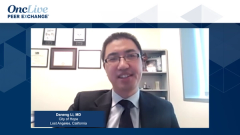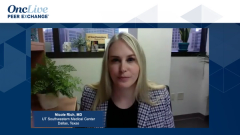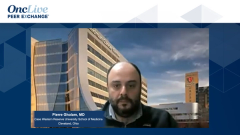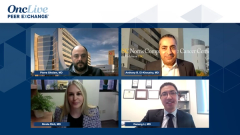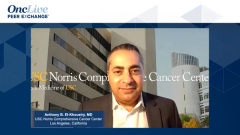
Emerging Frontline Treatment Strategies in Advanced HCC
Daneng Li, MD, discusses novel regimens in the pipeline being evaluated for the treatment of frontline advanced HCC.
Episodes in this series

Anthony B. El-Khoueiry, MD: Dr Li, I’ll go back to you. Are there other “cooking” combinations or first-line trials that you’re looking forward to seeing the results of in the near future?
Daneng Li, MD: Absolutely. We’re halfway there with COSMIC-312 and HIMALAYA. There are 2 other big studies that we’re anticipating, including the LEAP trial, which is comparing lenvatinib plus pembrolizumab vs lenvatinib. Before, there was a phase 1b single-arm study of the combination of lenvatinib plus pembrolizumab, which showed a very high effective response rate of close to 36% with the combination. That’s reassuring in terms of the potency of the medication. How that will match up against lenvatinib will be interesting, because this is the first time we’ll have a slightly different comparator arm, compared with what we traditionally have seen so far with sorafenib. And we know that lenvatinib tends to be a little more potent in terms of tumor control, PFS [progression-free survival], and objective response. The LEAP trial has a PFS coprimary end point, so it will be interesting to see the readout and how that compares.
The other study, CheckMate 9DW, is very similar to HIMALAYA in the sense that it’s looking at dual checkpoint inhibitors, nivolumab and ipilimumab, in the frontline setting vs either sorafenib or lenvatinib investigator choice. As you mentioned, in the initial CheckMate 040 study, we saw that really good response rate of 30% with the combination. But as we highlighted with dual checkpoint inhibitors, there’s that increased risk of immune-related toxicity requiring steroids and everything. I’m very much looking forward to these 2 studies, one with another more potent VEGF inhibitor plus PD-1 inhibitor in pembrolizumab, as well as the CheckMate 9DW study with nivolumab-ipilimumab, dual checkpoint inhibitors with good response rates vs sorafenib or lenvatinib investigator choice. Because if those are also positive like the other studies that we’ve seen, then it gives us a wealth of choices to tailor it directly to the patients for whom we want to use the specific regimen.
Anthony B. El-Khoueiry, MD: Great. I agree with you. Unfortunately, the tailoring at this point is limited to looking at the differential toxicity profile and risk-benefit ratio. There are no biomarkers available at this point to predict outcome or improve patient selection, so that continues to be an area of unmet need.
Transcript Edited for Clarity


